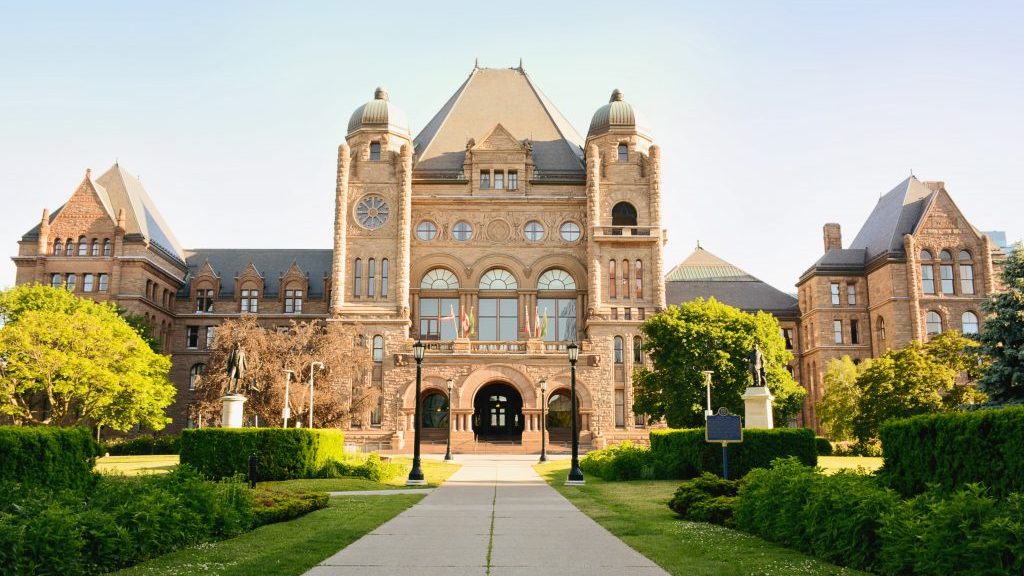Architectural Conservancy Ontario (ACO) is hosting its fifth annual Heritage Advocacy Day at Queen’s Park in Toronto and they are hoping to change the way the provincial government thinks about heritage buildings.
“We are asking that government make save and reuse the norm instead of demolition the norm,” explained Kae Elgie, chair (president), ACO.
“You don’t need special permission to demolish a building. We would like to see that change so that you would have to keep existing buildings unless you could prove that there was no good reason to keep it or that it was impossible to keep it.”
The advocacy day will take place on Feb. 19 at the Ontario legislature and will coincide with Ontario Heritage Week.
ACO’s mission is to encourage the adaptive reuse and conservation of buildings structures landscapes and districts that are of significant cultural value through education and advocacy work.
“Heritage Advocacy Day is an opportunity to advocate directly to MPPs on important heritage issues,” said Elgie.
“We are obviously meeting with representatives at the legislature and there is always an educational element but we also have policies that we would love to see implemented or tweaked a bit.”
There are 20 ACO branches in small and large towns and cities across Ontario, however they work fairly independently. The advocacy day serves as a way to bring those voices from different branches across the province together to speak to the government with one united voice.
There was more money to build a new school than there was to repair an old school,
— Kae Elgie
Architectural Conservancy Ontario
“The way the province works is that the Ontario Heritage Act and provincial policy statement give direction about how heritage should be protected in Ontario but those responsibilities are delegated to the municipalities,” said Elgie.
“We want the upper levels to see there are things that would make it easier for all our branches — and indeed other people besides ACO members who are concerned about conserving our cultural heritage — to get better protection, better education, better enforcement, better awareness.”
In the past, the ACO has gone to its advocacy day with specific properties, areas of concern or requesting small policy changes. The last number of years in particular, the group has been concerned about the policies with schools in the province.
“The way the funding trickled down was there was more money to build a new school than there was to repair an old school,” said Elgie.
“There wasn’t really money dedicated to repairing old schools so we would see that the repair bill would be so high that they would think ‘well we should just build a new one.’ Furthermore, the way the funding formula worked you could get money to build a new one but you couldn’t access money — unless you took it from another budget line — to do needed repairs that would keep a perfectly good building serviceable.”
A focus on repairing existing buildings would be good news for the construction industry, she noted.
“It would create a lot of jobs, skilled jobs, and it would be good for communities because the jobs that get created when people are doing renovations and rehabilitation tend to be local jobs,” Elgie explained, adding in its prebudget submission last year, the group urged the government to provide more support for training programs.
“I think it’s good news for the construction and building industry if this were the new norm to keep buildings and restore them, rehabilitate and retrofit them instead of just pulling them down and putting up sometimes prefab replacements which really isn’t beneficial to the local economy.”
In addition to economic development benefits, heritage buildings also provide environmental benefits.
“There is so much benefit to the environment from reusing buildings,” Elgie stated.
“You are not carting waste to the landfill, you are not wearing down the roads and putting greenhouse gas emissions into the atmosphere by destroying the building and carting it off. Furthermore, you are taking advantage of the building materials that are there they have embodied energy.”
While the group is hoping to meet with top ministers, they will also meet with local MPPs in the areas where ACO branches are located.
“What we want to do is plant this idea into as many decision makers minds as we possibly can that it is time to shift our thinking and open the door to further conversations,” said Elgie.
“The climate emergency and the need for local jobs is pushing us that way.”
Follow the author on Twitter @DCN_Angela.











Recent Comments
comments for this post are closed